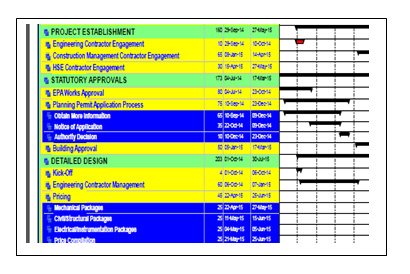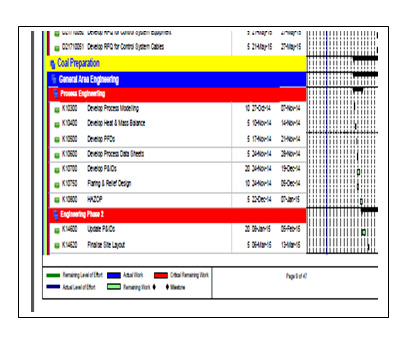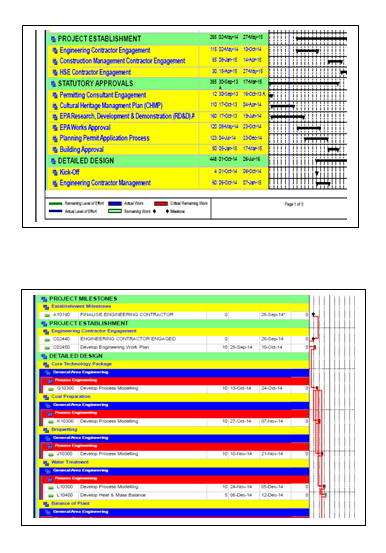Most schedules are an agglomeration of activities often with tenuous logic links and constrained dates without foundation or necessity. Such schedules merely capture history and poorly at that. They lack logical structure and are not amenable to being used as management tools.
It’s all about adding value
| AltAProM produces and maintains schedules for all Project Phases but recognises that most of the value is achieved during the selecting and defining phases. However this is just the beginning.
AltAProM believes that a schedule is a management tool and it should be able to be used as such. AltAProM schedules |
 |
| Owner Support
Project Developers and Owners often rely on their Contractors or Consultants to produce and manage the Master Project Schedule that typically includes only a few Owner activities mostly required by the Contractor or Consultant for its own work. This effectively hands over control to the Contractor or more usually to the Consultant. Whilst there are arguments for and against the Owner running The Master Project Schedule and there can only be one, often the Owner is not in a strong position to either set-up or manage that schedule. In AltAProM’s experience it is critical that all parties are fully aware of all activities and especially decisions that could impact their work. AltAProM is able to independently provide the services of setting up the overall schedule, maintain it and to ensure that it is communicated to all parties. Controlling Project Portfolios Sustaining capital projects tend to be diverse, numerous, mostly small, typically not as well-resourced or systemized and receive less management attention compared to larger major projects. AltAProM is experienced in managing large numbers of small projects and has developed a number of templates and methodologies to make the tasks easier faster and just as effective as managing larger and more prolifically resourced projects. Ask us |

|
| Probabilistic Analysis AltAProM carries out formal probabilistic review of the base schedule in order to establish the P10, P50 and P90 confidence levels Resource Leveling Critical Path Analysis Controllable Frameworks The critical path in a schedule can change rapidly. If unforeseen activities suddenly become critical appropriate management may come too late to avert an undesirable impact. Controllable frameworks can assist in identifying potential issues before they wreak havoc. Call us for more information about this powerful tool. |
 |
| Planning for Failure Who wants to plan for failure. It may come as a shock but planning for failure is just as important as planning for success. Planning for failure is not planning to fail. Nobody wants to plan to fail. However planning for failure provides very useful insights to your schedule and will focus your management to those activities that may not even initially appear on your schedule’s critical or near critical paths perhaps as a result of the way the schedule has been set-up. It is a must for testing the robustness of your schedule. What-if Analysis Forensic Analysis |
|

